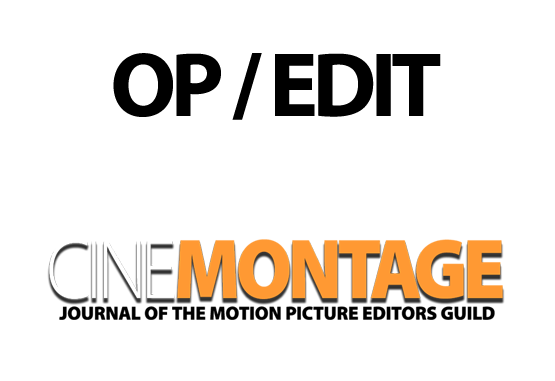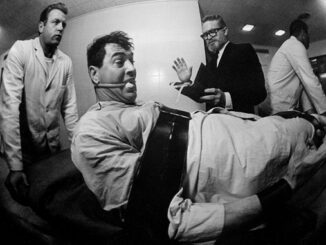
by Adam Lichtenstein
“When I know I’m on the final draft…I prepare four or five copies…[for] friends whose critical acumen I trust. I’ll…tape record what they’re saying…and I…[hear] the book described back to me in language which opens my thinking up… There’s [always] something to be gained, even if I think they’re wrong.”– Philip Roth, from Philip Roth: Unmasked, American Masters (2013)
The benefits of author Philip Roth’s method would seem obvious to any artist, but my experience as an editor has taught me otherwise. On the eve of a recent test screening, a presumably experienced client confided, “Is there really any point in this exercise? I mean, we know how well it’s working, right?” The next day we removed 12 previously precious minutes. Because they can be so upsetting, filmmakers — even the veterans — tend to play down the indispensability of test screenings. So I will advocate for them again.
Tests are essential; they help improve a movie’s communication to the widest audience possible. Just like Roth, I want to better my connection to people whenever I can, so despite how appealing a project may seem, I try not to work on the ones where the plan is rigid and opinions are unwelcome. Likewise, I try to stay away from a genre commonly known as “the vanity project.” These are films that are made with the unspoken intention of proving to others that the filmmaker was capable of the feat…and little else. The problem is that it’s not always clear you’ve joined a vanity project until it’s too late. However, there are some telltale signs; see below.
There is much to gain from pulling together the impressions of others. For instance, there are hundreds of ways in which a film can become derailed. Some examples include heretofore unnecessary story elements, sketchy performances and poorly executed craftwork. An impartial audience can very often identify these with not much more than a barely decipherable utterance. Statements like “I got bored 35 minutes in” or “I lost track of the main character halfway through” can lead a crack team down a path toward markedly improving their movie.
But first that requires a crack team. An editor can’t do this treacherous excavation work alone. He or she must have courageous partner-clients who are willing to experiment, to extend the schedule if necessary and to face hard, ego-shattering truths. Any other option would be to deny oneself the opportunity of being better understood and selling more tickets.
We need to improve our movies, and the only people who can point us in the right direction are those who offer us their unrestrained opinions, painful as they may be. But more than anything, we need to be open, flexible and brave enough to hear the very worst.
As a compassionate creative partner, I can well appreciate how crushing it must be to have to compromise nearly every aspect of one’s “baby.” However, there can be no bigger failure than throwing one’s hands up or stubbornly sticking to one’s guns. Fortunately, there are insights to be learned from all walks of life, irrespective of background or presumed motives. Some issues are more reconcilable than others, but when filmmakers dismiss an audience member for not “getting” their movie, they’re no longer making a movie for others; they’re making a vanity project.
After several back-to-back tests, the director of my first feature was barraged with negative feedback. It nearly broke him. He had just wrestled his turned-around script from a big studio, thinking he could make a go of it on a shoestring. And not only were his dreams quickly vanishing, but so were the ones I coveted of acquiring follow-up work. This was our defining moment. We turned to the scathing scorecards and tackled them head on.
Our first order of business was to make two seemingly conflicting resolutions that would change the course of the project. For starters, we would not re-fashion our movie for people who didn’t appreciate its essence in the first place. And then we vowed to deduct meaning from every single unfavorable scorecard. In so doing we built a better movie, for sure, but we also built character.
From that point forward, I never again engaged in warfare with detractors — only with those who would lavish me and my colleagues with empty praise. We need to improve our movies, and the only people who can point us in the right direction are those who offer us their unrestrained opinions, painful as they may be. But more than anything, we need to be open, flexible and brave enough to hear the very worst.
My first editorial effort wasn’t a success in the same way that people often describe breakout movies. It did not “blow up,” as they say. But it did pay off its deferments and fulfilled the realistic expectations of the profit participants. The real success came in the lessons we carried to scores of subsequent projects, to our interpersonal relationships even, and to many more who would have the good sense to listen to what other people have to say.





